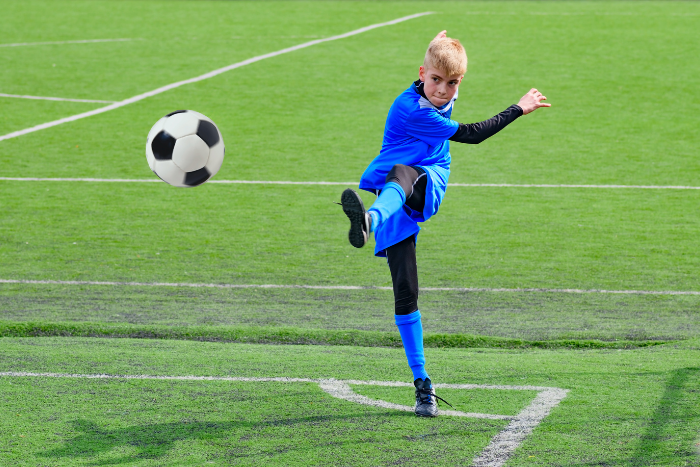If your child is involved in any kind of sport, you likely know how all-encompassing the student-athlete life can be. There’s practice after school, games in the evenings, and tournaments on the weekends. This doesn’t even include the increased physical activity your student must maintain to keep up with their training! You might not even be able to fathom the idea of engaging student-athletes in science right now, but we’re here to tell you that it’s easier than you think!

The Physics of Sports
In simple terms, sports is science! It may not be directly correlated with topics like chemistry or earth science, but the science of physics is what makes sports possible for humans! In fact, physics can be used to further one’s success in sports through new techniques learned.
Have you ever launched a basketball at the hoop and screamed for joy as it magically swished right through the hoop? How does this even happen? Better yet, how in the world do professional basketball players make a basket every single time?

The answer is physics! Parabolic motion (AKA projectile motion) follows both a horizontal and vertical axis of motion. When a basketball is launched into the air, it follows the horizontal axis. Gravity brings the ball down – into the hoop, hopefully – and follows the vertical axis. Ideally, this will look like an arc on an axis chart, which is why coaches often tell their players that they need to have more of an arc when they shoot hoops! The ball needs to go up the horizontal axis so it can be pulled down the vertical axis and into the hoop.
Okay, so this is just one very basic example of how physics impacts sports, but there is so much more to learn! Each sport – running, golf, soccer, etc. – incorporates physics in some way, even if a ball isn’t included.
Engaging Student Athletes in Science

Now that you have a very basic understanding of what role physics can play in sports, let’s talk about ways to engage your student-athlete in science, without letting go of his/her love for sports.
3 Books About Physics in Sports
The Book of Wildly Spectacular Sports Science: 54 All-Star Experiments
If you’re looking for a book that provides hands-on activities that incorporate science and sports, this is for you! Written primarily for grade levels 4-7, this book demonstrates the scientific principles beyond the world of sports, with step-by-step instructions and explanations!
Your high school varsity football player is going to love this book! The author uses real-life examples from some of football’s greatest, in addition to breaking down each position, play, and rule that encompasses the wildly popular sport.
This read is full of illustrations and charts that make understanding physics even easier! The author brings all four aspects of STEM into sports: science, technology, engineering, and math.
Everyday Ways to Teach Physics in Sports

Aside from reading the recommended books above, there are a few ways to engage your student-athlete in the science of physics.
One way is to let them watch sports! Even if you don’t prefer to spend a weekend watching football games, there are still a lot of ways to watch sports, thanks to the internet. Doing a simple search for “greatest sports plays” of all time will produce a lot of exciting results. But don’t just let your student watch the plays; use this as an opportunity to discuss how physics plays a role in each touchdown, free throw, or last-minute goal!
Another way to incorporate science in sports is through visual presentations. So your student loves to figure skate – have them create a poster board that displays the physics behind that triple axle or spin! This can apply to all sports because physics is in all sports!

Discover Physics With Journey Homeschool Academy
Oftentimes, the science of physics is thought of as complicated and “next-level.” Parents might find it daunting to teach this subject. So, to make it easier on you, we’ve created Discover Physics! Written specifically for high schoolers, this online science course takes the “what in the world” out of teaching physics and replaces it with “wow!” With engaging video lessons, hands-on activities, and enough hours for high school credit, Discover Physics is the perfect college-prep physics course for your student-athlete.
Engaging student athletes in science can and should be fun because sports and science on their own are fun! Ready, set, GOAL!
